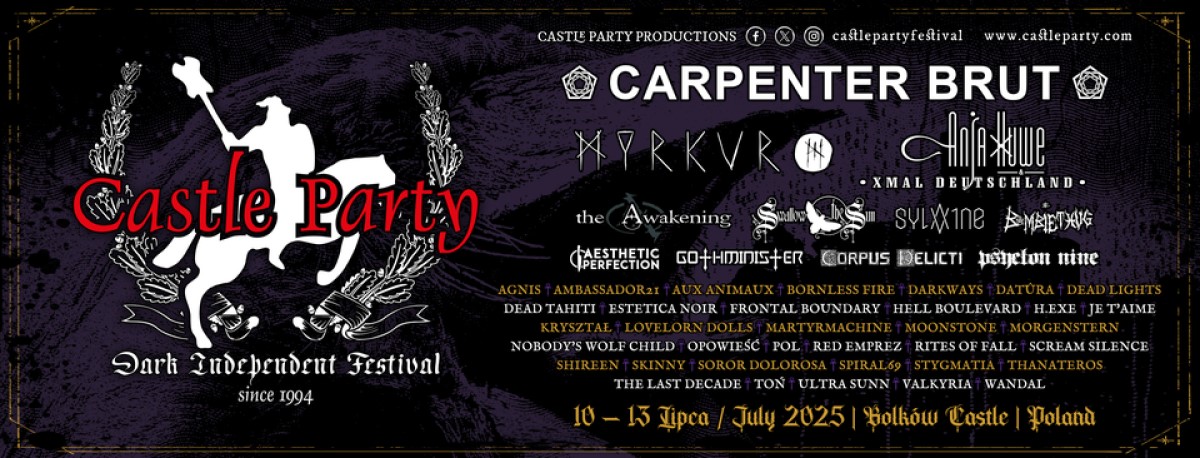Mikael Stanne stands as one of the most prominent musicians in the Nordic metal scene - an enigmatic and iconic figure known to virtually every metal fan. The Swedish musician, best recognised as the vocalist, songwriter, and former guitarist of the melodic death metal band Dark Tranquillity, remains the band's sole original member since drummer Anders Jivarp's departure in 2021. Dark Tranquillity has shaped the melodeath genre with 13 albums to date, each contributing to its evolution. Its latest release, Endtime Signals, unveiled last year by Century Media, once again pushes the genre's boundaries with its masterful composition. Beyond that, Mikael made waves in 2024 with Nordic Gothic, an outstanding album from the gothic metal supergroup Cemetery Skyline. This release, alongside others in recent years, has reignited interest in the genre. In addition to his work with Dark Tranquillity, Stanne fronts Grand Cadaver and The Halo Effect. In the early to mid-90s, he also lent his vocals to HammerFall and In Flames. We met Mikael on the day of Dark Tranquillity's concert in Ljubljana for a long conversation about the Dark Tranquillity, Cemetery Skyline, the famous Gothenburg metal scene, and much more. Enjoy the read!
Interview with: Mikael Stanne
Conducted by: Tomaz, Jerneja
Edited by: Jerneja
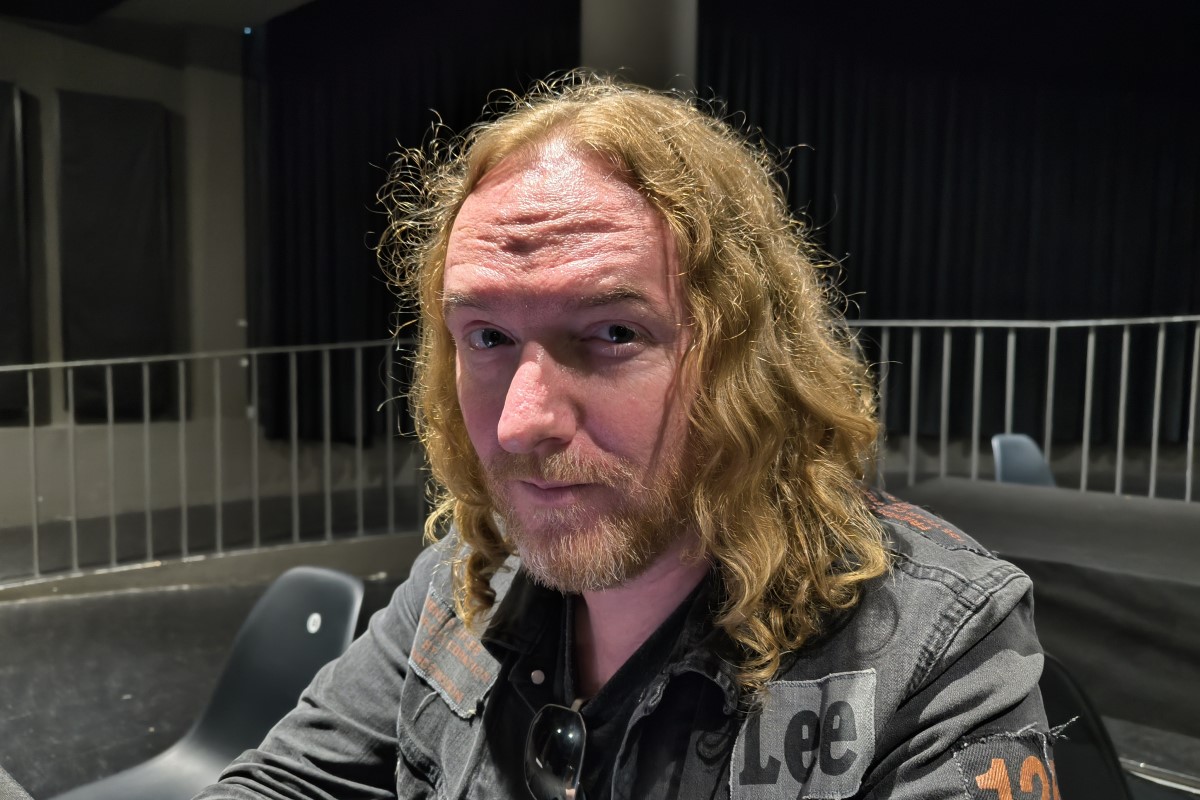
Tomaz: Hello Mikael. Nice to meet you... How's the tour going? How satisfied are you with the places you've visited?
Mikael: It's been great. I mean, this is the second leg of this tour for us since we started it in October or November last year. It was almost the same line-up, with Moonspell and Hiraes, and it's so fantastic. It was incredible, and we agreed to continue with it in the places we couldn't visit last year. So, rather than doing a six or seven-week tour, we did two tours. We've been up in Finland, and it was fantastic. It just keeps getting better and better further down south we come, as always.
Jerneja: How come? I always thought northerners preferred the cold...
Mikael: I don't know. To me, it feels better where the weather is nice and people are happier. When we played in Finland, there was a snowstorm, and less than two weeks ago. In Scandinavia, it is cold, but the beginning of spring can be very nice also there. So, we've had some fantastic shows over the last few days. It's just incredible, and we're all very happy to be on the road again.
Tomaz: Last August, you released your 13th studio album, Endtime Signals, with Dark Tranquillity. How satisfied are you with it, especially considering that it is the result of a changed line-up?
Mikael: It feels incredible that we pulled it off. It took us a long time to write it, finish it, and make it sound the way we wanted it to. We had so many ideas about what we wanted to do. It's our 13th album. It's a different line-up and writing team - Johan and Martin were writing with me for the first time. So, it had to be special; it had to be something that we could be proud of and also suitable to start a new version of the band. We took it very seriously. We were really satisfied when we finished it, and when it came out, people liked it a lot, so it's a fantastic feeling. Now we are just reaping the benefits and the rewards of the album, you know. Playing some of these songs live, you can see how people feel about them, and it's very emotional to see how the album is received, kind of embraced. So, I'm incredibly happy and proud of this new album. It's a blast to play a lot of these new songs every night.
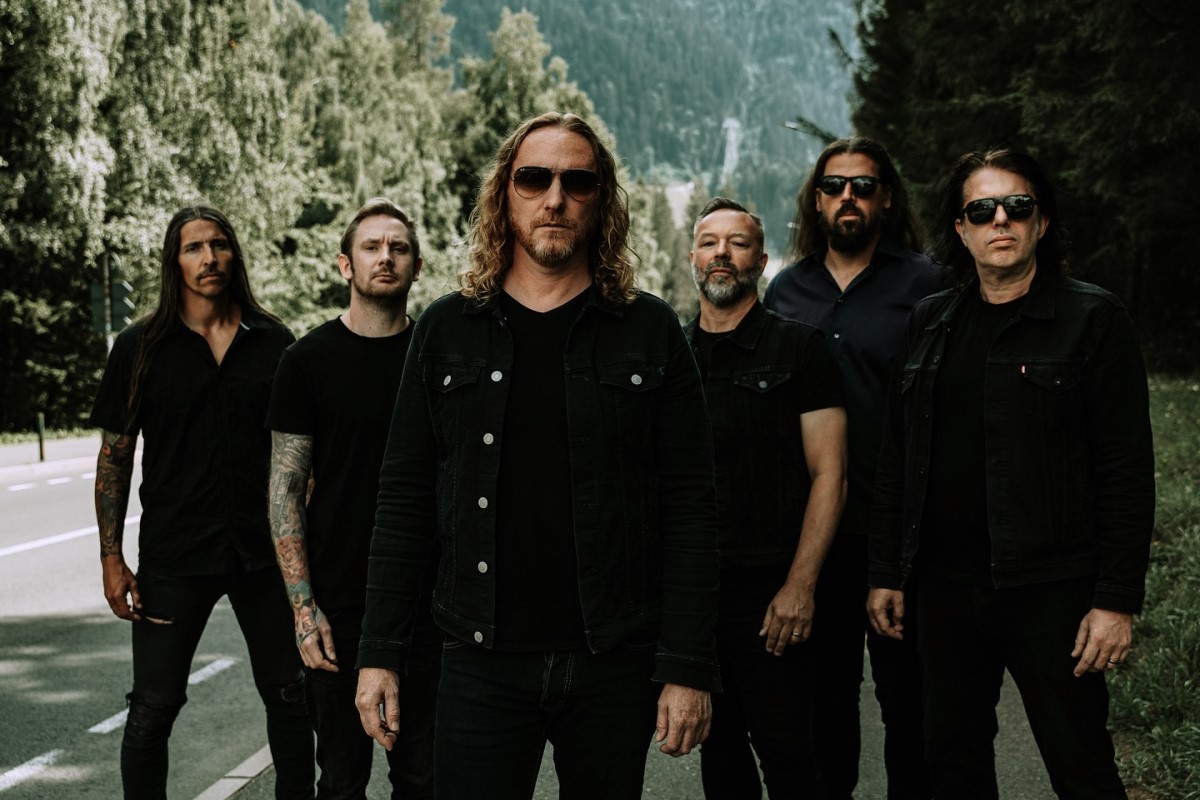
Jerneja: I imagine last year was quite a busy one for you, as in addition to Endtime Signals, you released the album Nordic Gothic with the newly formed supergroup Cemetery Skyline. On top of that, you are also active in two other bands, The Halo Effect and Grand Cadaver...
Mikael: Well, sometimes it gets stressful. OK, Dark Tranquillity is where I focus most of my energy, and we had a long process of writing and going through stuff. When I have some time off, I do some of The Halo Effect or, recently, Cemetery Skyline's stuff. Sometimes, it gets a bit tricky to balance the time, but when we go into the Dark Tranquillity mode, it can last for months. We are in the studio almost every day, trying to redefine and try new things. We always try to come up with the best solutions.
Jerneja: How did the band Cemetery Skyline come about? Did you start coming up with melodies from other genres and think about launching a new band?
Mikael: No, it wasn't like that. Markus Vanhala of Insomnium and Omnium Gatherum and Santeri Kallio from Amorphis, the guys who I've known since ever, and we toured together so many times, called me and said that they were doing some gothy rock stuff and that they thought of me as a singer. I said, "Wow, cool, it sounds interesting, let's see. Send over some demos and we'll talk". That was over four years ago. We were bouncing ideas back and forth. That was after finishing the recordings of Moment, the previous Dark Tranquillity album. I just finished all the lyrics, and I was pretty happy with it. I have a home studio where I enjoy singing and recording stuff, so when the idea came up, I just continued to write some melodies and vocals for the songs that Markus and Santeri wrote.
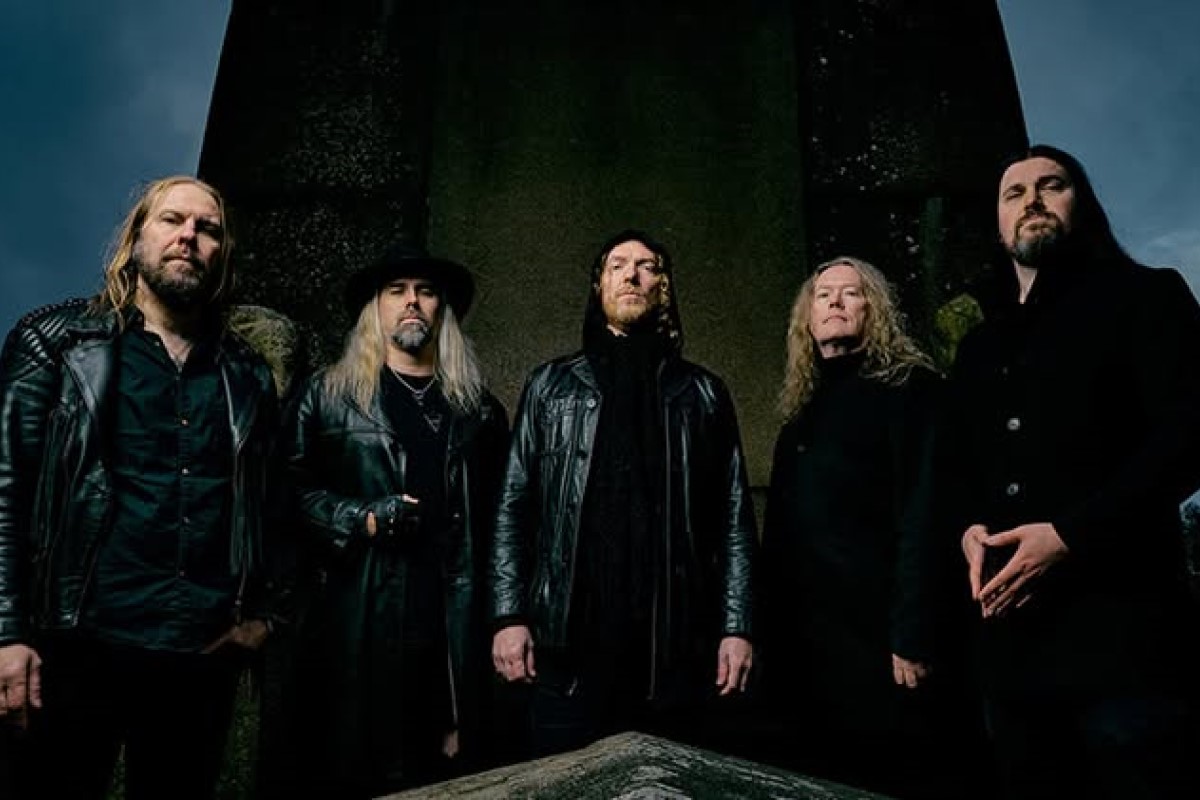
Jerneja: How do you like singing clean vocals for Cemetery Skyline? It's very different from the Dark Tranquillity stuff, much softer...
Mikael: Yeah, I do. For sure, it is definitely much softer. It's a credit to give to the artists with who we grew up, like 80s pop, 80s rock, the goth stuff, and the synth stuff. That's what I grew up with before I discovered metal. For me, that's something very close to my heart. Markus has included all this stuff into his music, Santeri as well, and so did I in Dark Tranquillity, and now, we did it for real to see what happens. We had no expectations or regulations; we could do whatever we wanted, and that's cool.
Tomaz: Are you aware that Cemetery Skyline, along with High Parasite, brought about a kind of gothic metal revival?
Mikael: High Parasite is a great band. Well, I'm not aware of that, but it was kind of fun to see that. Also, Tribulation, our friends from Stockholm, did the most gothic album ever. It's happening for sure, and it's super cool. But we had no idea; to us, it wasn't about that, it was just about how to make something that would sound like... First, we had something like Type O Negative-sounding stuff, which was very synthy, but then we found the right balance. We didn't want to make it too cheesy and to make fun of the genre, so we took it seriously. Especially if we talk about goth rock - The Sisters Of Mercy, Fields Of The Nephilim and bands like that are very serious. They take themselves very seriously. You have to take it seriously; otherwise, you can poke fun, and it can become silly in itself. Finding the right balance was the hardest part of writing these songs. We were trying out many different things; we were sending so many demos back and forth, especially during the pandemic.
Jerneja: After Nordic Gothic was released, you unleashed the "I Drove All Night" cover, labelled as a cover of Cyndi Lauper's song. So, I was in a dilemma when writing the news because I always considered it a Roy Orbison song...
Mikael: Well, yes, it was meant for Roy Orbison, but Cyndi Lauper released it first. It was released under the name of Roy Orbison after he died.
Jerneja: Is the song already announcing Cemetery Skyline's next album?
Mikael: No, we recorded it at the same time as the album. We recorded many songs because we had so much material. We might release some more stuff soon, but I don't know when. I know that Markus and Santeri are already working on new stuff, but that stresses me out a little bit because I don't have time. The Cemetery Skyline album number two is going to happen, for sure. It'll take a while because it has to be done right. We cannot rush things. Everybody is super busy at the moment but it's gonna to be fine.
Tomaz: Since you wrote the lyrics for Nordic Gothic, the album title is probably also your thing. Is there anything special behind it, or is it simply the fact that you come from Northern Europe and play gothic metal?
Mikael: Yes, I wrote the lyrics. Regarding the title, I had Scandinavian Gothic in mind, but since Finland is a Nordic country but not part of Scandinavia, it's Nordic Gothic. The theme is loneliness, a kind of self-chosen loneliness. For example, Sweden has the highest number of people in the world living alone - one person in an apartment or house.
Jerneja: But unlike Slovenians, you can at least afford it, financially, I mean...
Mikael: Haha, I know, it's expensive also in Scandinavia. But it's also about something deeper - you want to be alone, and people want to seclude themselves, saying, "This is mine". It's not about the big family; it's a common theme in Scandinavia and Nordic countries. You can live in a cottage, like in Finland, where they have cottages by the lakes. They go there by themselves, where they are in a quiet place, and everybody else can fuck off. There's a certain kind of melancholy around that. You choose to be alone, it's fine, you know. That was kind of my starting point for the album's lyrics. Then I integrated a lot of sad or depressing, kind of scary stories from relationships that I or my friends have experienced, the stuff I heard about and it kind of fit into this gothic theme of loneliness. It's about the desperation that some experienced, and maybe they shouldn't have. Those are very personal stories.
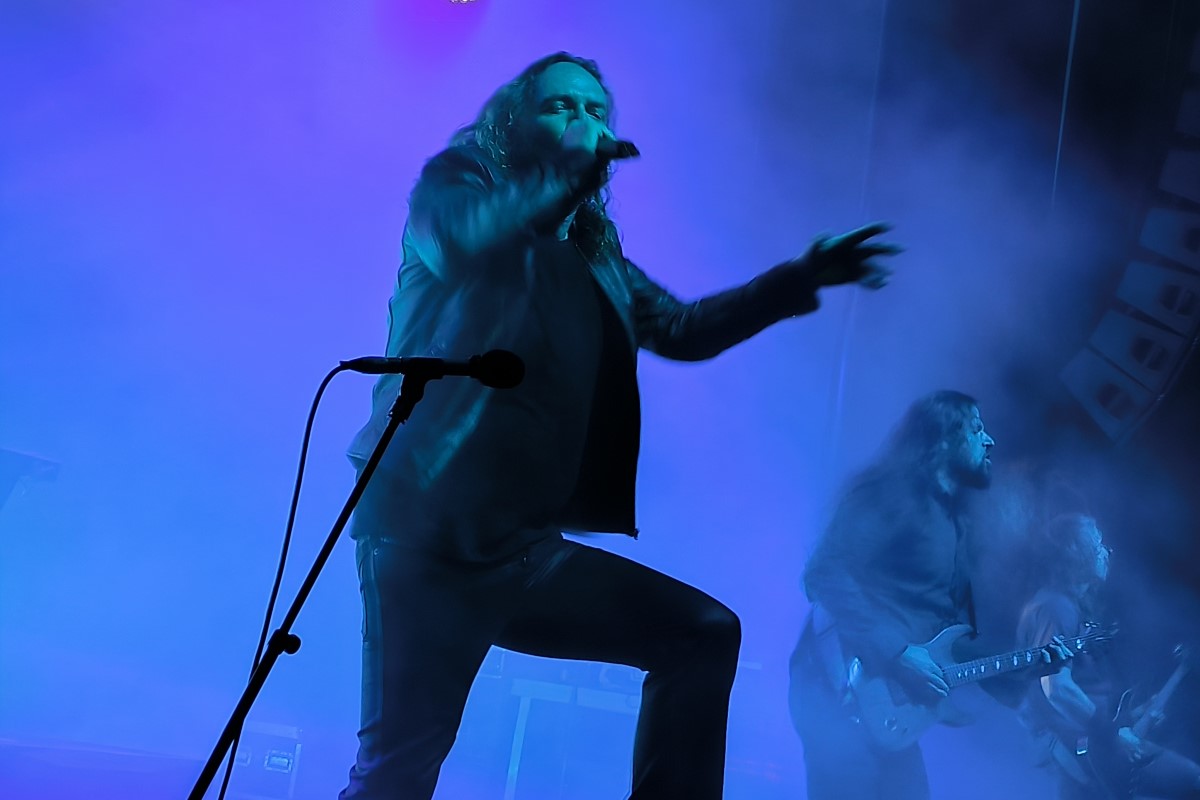
Jerneja: With us, you enjoy solitude the most when you go to the bathroom, haha...
Mikael: That's how the touring looks like, you know, haha. For me, the only place where I'm alone is in the shower or bathroom. Everywhere else, there are people. In Scandinavia, we often walk alone when we wake up in the morning and have nothing else to do, with headphones and noise cancellation on. It's very distracting to be just at home because your friends are close, your family is there, or whatever. I have to sit in front of a screen with a typewriter and write and listen with headphones on my ears. That's all I need to work. It's difficult because there are always text messages, emails and stuff like that. It's good to sometimes turn things off and just go away. I can go to my parents' hut, which is just outside Gothenburg. I can just sit there and work for a while, and it feels great. Also, in the middle of the night, when my family is asleep, I can work in peace for two or three hours.
Jerneja: I assume you liked the quarantine? It was unpleasant for many, but I liked it...
Mikael: I liked it, too. I wrote three albums during that time.
Tomaz: Let's go back a little to Dark Tranquillity and Endtime Signals - the album's title already announces a theme that relates to the issues of our times.
Mikael: For sure. It was something that struck us after the pandemic. We started touring again, like going out and travelling around, but soon realized that the thing that should have united us, since we all went through the same kind of trauma, OK, different in every country but still the same, instead turned people even further apart from each other. That felt really depressing to me. Then, of course, the rise of right-wing politics in Europe and in the USA. I thought that we would go in the right direction, we should have, but it's in the wrong direction in so many cases. The information doesn't have the same value anymore - too often only about your own truth, your own research, and that kind of stuff. We could have the information that can unify - what the internet should be like - but instead, everybody is doing the absolute opposite. There are so many false opinions on social media. It's very depressing and hard to see. It has become harder and harder to remain positive or to have an outlook on life that's not that bleak. So, we decided to make an album that reflects that - like, how it feels when you should have been positive, but it's bleak. We wanted the album to have this dark atmosphere and not shy away from it. We talked a lot before we started writing the album - about what kind of feeling we wanted to create, and then we tried to achieve that. The title reflects that. There are so many signals about what could be considered like "this is the end of this, this is the end of that...", the end of all the things that we have taken for granted. Some of those things have been taken down to the left or right. It's about all these signs that say things are getting worse, not better. It's rough.
Tomaz: You're the only original member of Dark Tranquillity left. Members have come and gone over the years, and now the band is almost completely new. So how does it feel when someone you've worked with for years leaves, and then someone else comes in, and so on? What's it like for you to connect with different people within the band?
Mikael: Of course, it's difficult, but it's also super important. The thing is that I and Martin B., who joined the band nine years after we started, Niklas, who does our cover artwork, and Martin, who played bass and guitar back then, are in contact almost every day. Martin is our manager, and Niklas is our art director. So, it's still the four of us, basically the original line-up, making choices. When Niklas quit because he had to take care of his young child and wanted to be a full-time dad, he suggested taking Johan, who he said was awesome and the best guitarist he had ever seen, so we chose Johan.
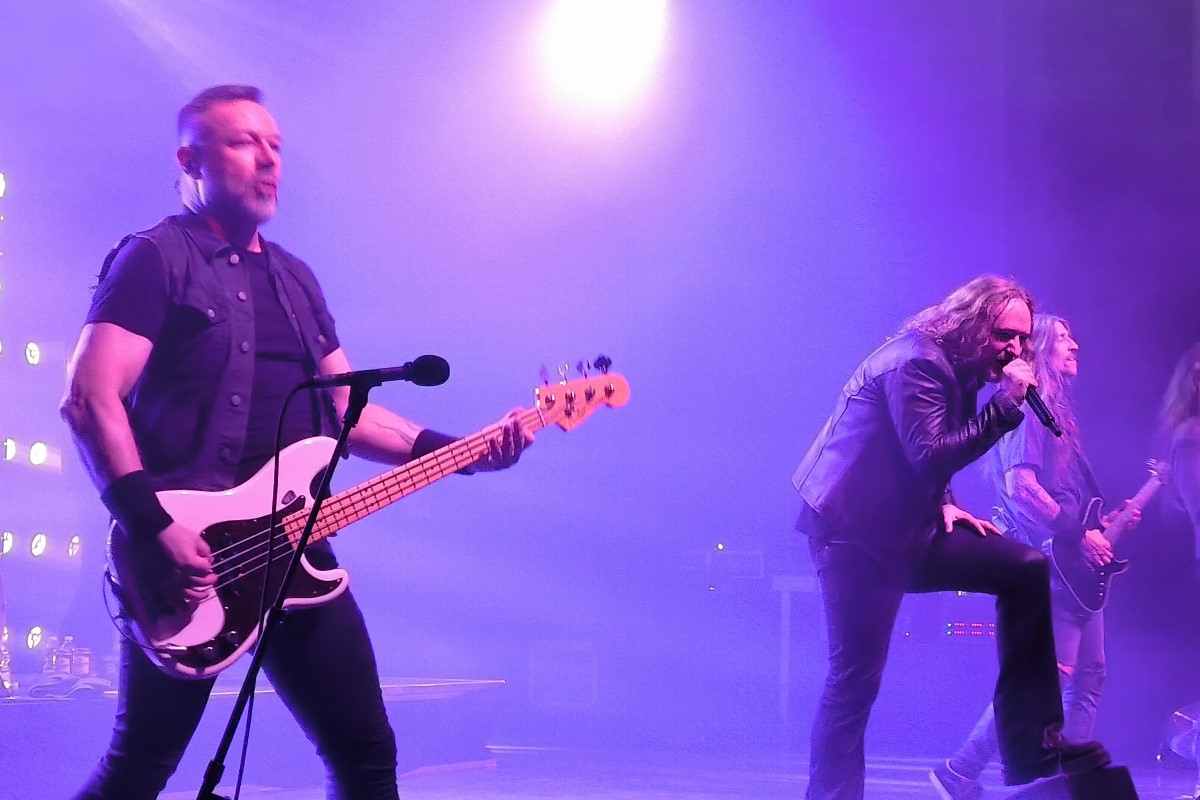
Jerneja: But Niklas now has a band, Time And The Hunter, with whom he recently released a debut full-length, Weapon Pt. I, and featuring you in the "The Following Silence" video single.
Mikael: Yeah, you are right, but he never tours, he never travels, anyway. He lives in the USA. Niklas is super creative, and he can't hold back, but he doesn't want to leave the house. He's my very good friend. So, to return, that's how it happened with Johan. Then Christophe came in, and when he left, he suggested Joey, who now plays in Arch Enemy. We had him for a while, but then Martin Henriksson said that the best rhythm guitar player - we also toured together - was Peter from HateSphere. I said, "OK, cool". In a way, everybody decided who their successors would be. It's a matter of finding the right people, so when Anders Iwers quit during the pandemic because he couldn't focus on his work anymore, I called Christian, an old friend of mine who plays in Grand Cadaver. He started playing music in Gothenburg even before us, and we were always looking after him if he wanted to join us at some point. In a way, it's about finding the real guys who you love and respect. Joakim, who now plays the drums, is Johan's old classmate from high school and music university.
Tomaz: So, it's all connected. Some kind of corruption, haha.
Mikael: Haha, yes, but in the best possible way, because we know each other, we know exactly from where we are coming, and we all have a very similar background when it comes to terms of music. Joakim grew up with our band, listening to our music, and so did Johan. It's important to be connected. Otherwise, it's not fun, and it feels like you're just going to work, and it shouldn't be that way.
Jerneja: It's almost hard to understand that someone would decide to leave a band like Dark Tranquillity...
Mikael: Yeah, but of course, it's never an easy decision. It usually happens that you reach a certain point in life when you decide to focus on something else. Our tour schedule is quite intense and not for everyone. Your priorities might change throughout your life. You must understand that we have been doing this since we were seventeen. It's the same thing over and over again. But it's good, and if somebody wants to leave, I totally understand that they want to live that other life, and I support this.
Tomaz: You've done a few guest appearances, most recently, as mentioned, with Time And The Hunter and Ison a few years ago. Both songs are very nice. How do you decide who to collaborate with?
Mikael: Oh, thank you. Usually, it's friends. Daniel, who does everything for Ison, is a friend of mine and you know. I bought all of the Ison's records when they came out. He said, "Hey, you should be on our next album", and I was very honoured because I love his stuff. We collaborated on one song, which we recorded in his studio, and it turned out great. I loved it. With Time And The Hunter... of course, it's Niklas - he's my oldest friend, and Enrico, who sings, is an old friend too, who I've known for 15 years already. I heard some of the early demos, and I asked if there was any way I could be a part of this. They said they already had a song that they wrote for me. Almost the same thing happened with Oceans Of Slumber's latest album. I love Oceans Of Slumber, and I know the guys, so, you know, it's easy to choose. I get many offers via email, but I can't accept them all.
Tomaz: Now let's go far back in time... I've always wondered what was going on in your city of Gothenburg in the early 90s. You created a new genre known as melodeath or melodic death metal, which immediately became very popular, even within the more extreme side of metal music. The three most important and influential bands, Dark Tranquillity, In Flames and At The Gates, all originated from there.
Mikael: It's hard to pinpoint it and see it objectively because, for me, it's just what happened in our small city. I think there are a few reasons why it worked. One of them is the culture in Sweden. If you want to start a band, you can go to a local youth centre, where there will be a rehearsal room, some instruments, and most likely, there will be a guy who knows how to play some of them and can teach you. That's all over Sweden, and it's one of the reasons why there are so many bands in Sweden. It's so easy when you are 15 years old and don't know what to do. Should I make my moped go faster, play football, or start a band? If you are creative, you will try to start a band. If you have some metal friends, you can try and see if it works. That's how most of the bands started, and it was the same for many bands in Gothenburg. At the same time, there was one record store where we all hung out, and there was one venue where they played a lot of electronic music, synth stuff, and also death and doom stuff. We dreamed that we would play there someday, even though the place was very small. There was also a strong connection between us as friends, and we discovered this music together - in 1988 or something like that. It became so very important to us; it was all that mattered. When I saw back then the band named Grotesque, who later became At The Gates, at rehearsals, I said to myself, "Holy fuck, we can do that". Then I went home and told Niklas that we needed to buy guitars and start a band. It was the same with In Flames, who came later, and with some other bands. I remember Jesper Strömblad - we were sitting in someone's car, and I played him our first album way before it came out. He was fascinated and said that it was fantastic and wondered if we really could play all those melodies. He said that he'd start a band as well. Three months later, he sent me a demo of In Flames and asked me if I wanted to sing on those songs. Yes, sure, cool, and I did it. That's how we started. We were outsiders, and nobody knew what the fuck was going on. We just listened to this extreme music that nobody else liked, and that made us very strong as a community. It wasn't difficult, at least. Almost all of us learned how to play instruments entirely by ourselves. I only know a guy or two who learned it in school - the rest of us are all self-taught. It was like a drive. Gothenburg is very nice, and the suburb where we lived is very nice; everybody was comfortable, no worries, no problems. Our parents had nice jobs, so there was nothing to worry about or strive for. Most of my friends at school said that when they grew up, they would be like their father or mother, that they would go to work and do business or whatever. I thought it was probably the most boring thing in the world - I couldn't stand it. My parents had great jobs, but I didn't want to be like that, so I did everything I could to avoid it and their expectations. I got to know Tomas Lindberg of At The Gates early on because we were almost neighbours. He's two years older than I, and he had tons of music and stuff like that. I learned about the underground scene through him. He was very pivotal as well; he had a fanzine and already many contacts with people from all over the world. With him, we listened to a lot of music and met many people involved in the scene. We were 18 years old or something at the time, and it was some kind of community. All of this left a strong impression on all of us, and, of course, everyone is still doing it, almost no one has quit.
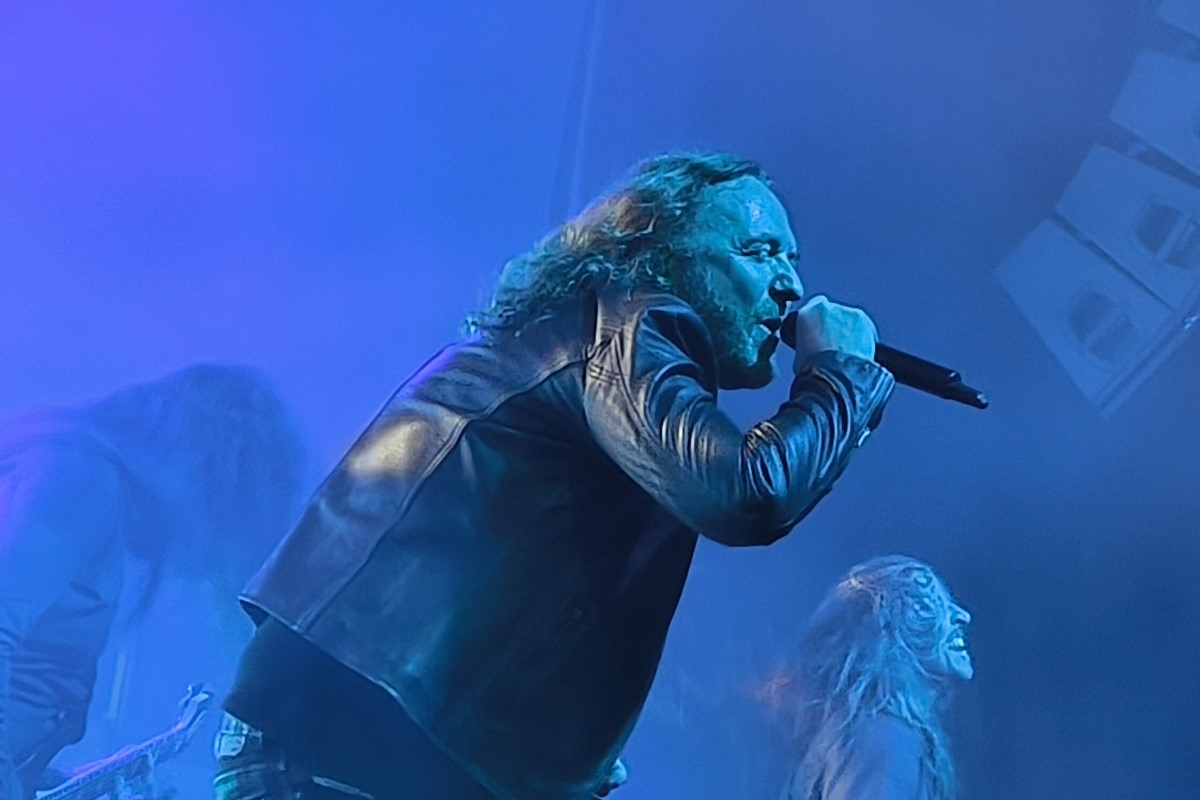
Tomaz: What does it mean to you that you created a certain music scene, or at least a new genre, that has become so popular?
Mikael: I don't really think about it that way because it is just something that we did. On the other hand, of course, I'm incredibly proud. When we started, we wanted to be different and original. We wanted to play music that no one else was playing. That was all. When Niklas and I started the band, we were wondering how to make it original. You know, we loved American death metal, Swedish death metal, German thrash metal, English goth rock and stuff like that. How do you make something that doesn't sound like any of that but has all those influences? So, whenever we wrote something, we would throw it away as soon as we thought that it sounded like someone else. It was the same for At The Gates and In Flames. It was all about being original. It became like a mantra, one of those things that we always talked about. If it wasn't original, we throw it away. If other bands sing about mutilations, death and gore, we sing about poetry, lyrical themes, history, or something else. We were doing melodic solos, like melodic speed metal or power metal bands. It wasn't even about finding a sound; it was more like avoiding sounding like anything else. And that created our sound. It was kind of weird to us when, in 1995 or 1996, people started saying that Gothenburg bands sound almost the same, that it's almost like a scene or a sound. What the fuck; we tried so hard to be different from each other. We grew up with the same music, had the same records, and copied them from each other because we couldn't afford to buy that many records. Of course, there is a connection, but we tried so hard to be different from each other. At The Gates was more proggy and weird, and In Flames was more folky at the beginning. I didn't really see a connection, and it felt like an insult, but, of course, I'm very proud of it now.
Jerneja: Many bands imitate your sound, but which one do you find most similar?
Mikael: I hear things here and there. There was one black metal band that actually stole the lyrics from one of our songs. It was a black metal song, so you couldn't hear the lyrics, but you could read it. It was my lyrics, and they just stole it. Some bands took their names from the lyrics of our songs. That's cool. There are definitely bands that are clear from the first demos what they were listening to. When we started, we wanted to sound like all these other bands but at the same time be different. We wanted the intensity of Kreator, and we wanted to be as brutal as Morbid Angel and as emotional as The Mission.
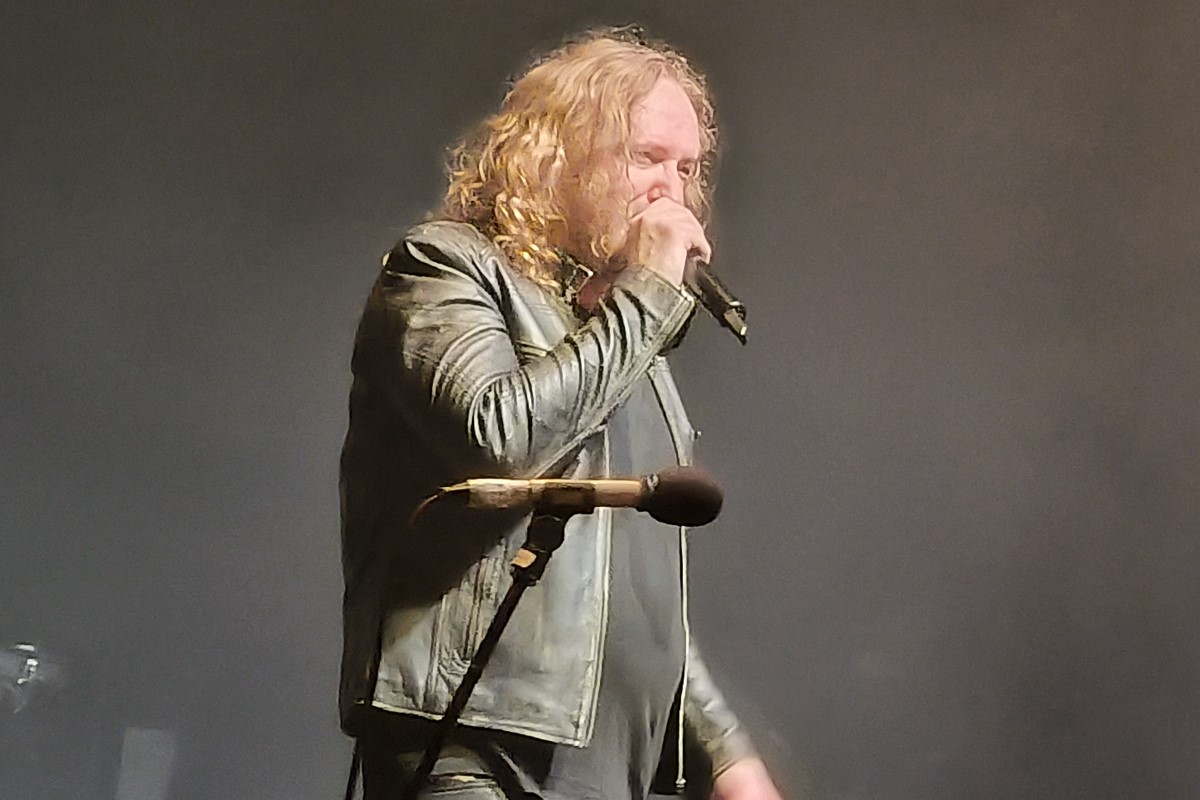
Jerneja: How do you feel about being an inspiration to younger/upcoming musicians?
Mikael: It's weird, but at the same time, it's incredible. When someone tells us that they started a band because of us, it's hard to take in. It's not easy to fully comprehend it.
Tomaz: After 13 albums with Dark Tranquillity, are you still trying to find some originality, or do you want to stick with the one you're already known for?
Mikael: Maybe we stuck with it for three albums before the latest one. We were a team, and we kind of liked to work together, but I felt that it became too familiar in a way. It's easy to fall into those traps. It worked before, so let's do it again. That's the opposite of what we want to do. We try as hard as we can to get away from that. But you know, sometimes straightforward songs are better than complex ones. It's a matter of finding a new way of looking at music, like when you started. You need to have a fresh perspective on it, and that makes a difference. Of course, we changed songwriters over the years. The reason we take more than three years between each album is that we need to take a break, some time off; we need some time to reevaluate what we've done and what we need to do to move forward. It's a matter of perspective, I think.
Tomaz: We saw you play live at Summer Breeze in 2022, and you always exude positive energy on stage. You smile a lot, and I think the audience gets a very positive feeling from you. It's a different vibe than we are used to from many metal bands.
Mikael: I don't know why, but for me, it's a combination of feeling relief and a kind of satisfaction. When we go on stage, it's a combination of everything we've done - all the work you've done in the studio, at home, rehearsing, writing, recording, and all that stuff, you know, all the work that you do to put together an album. You go on stage, you play all these new songs, and when people get it, it's the greatest feeling in the world. You know, all that hard work pays off. It's one thing when people buy records, but you can't see it directly. When you're on stage, you see people directly, you look someone in the eye, and sometimes you see that they understand. For me, that's the biggest relief. That makes it fun, and it makes me incredibly happy when it works. There are months and months of work, and then you finally stand where everything works - you stand in the right place. It's an incredible feeling, so it's hard not to be happy.
Tomaz: As the vocalist for Dark Tranquillity, you often switch between growling and clean vocals. How difficult is that?
Mikael: I've been doing this for so long that it's not difficult for me at all, but, of course, it took me a while to get there. Many years ago, it was harder, but today, it's just technique and experience. It's very natural for me now. When you do something 10,000 times, it has to become like that.

Jerneja: With Dark Tranquillity, you remain loyal to Century Media Records, where Cemetery Skyline also found its home. Is this just because of the contracts you signed, or are you actually happy with the label?
Mikael: I love them. With Cemetery Skyline, it was kind of obvious. We sent out a demo, and we got five different labels that were interested in us, but we chose Century Media because we like them. They are very experienced, and the bands we talk with are all happy with the label. With The Halo Effect, we are signed to Nuclear Blast Records, but the old boss of Century Media Records is now there. For me, it's all the same because it's the same kind of people that I talk to and communicate with. It's kind of easy, and I love it. It's not a contractional thing at all, you know; bands are different, and we can do anything.
Jerneja: Shall we expect Cemetery Skyline to tour these parts of Europe any time soon?
Mikael: Not this year, but next year is almost fully booked. It's going to happen for sure - it's just a matter of time. It would be cool to play at Tolminator like we did last year with Dark Tranquillity. It's a great festival, and I love it.
Tomaz: It was a long but pleasant conversation; thank you very much for it! We'll leave the final words to you...
Mikael: I'm incredibly happy that we can still do this. After all these years, things are still getting better, mainly thanks to the audience listening to our music and coming to our shows. It's fantastic, and I'm glad that people are embracing my other projects as well. It's really cool, and I hope to bring Cemetery Skyline here one day. We have some more shows coming up, but mostly in Finland.
Live photos by Tomaz
Dark Tranquillity links: Official Website, Facebook, Instagram
Cemetery Skyline links: Official website, Facebook, Instagram
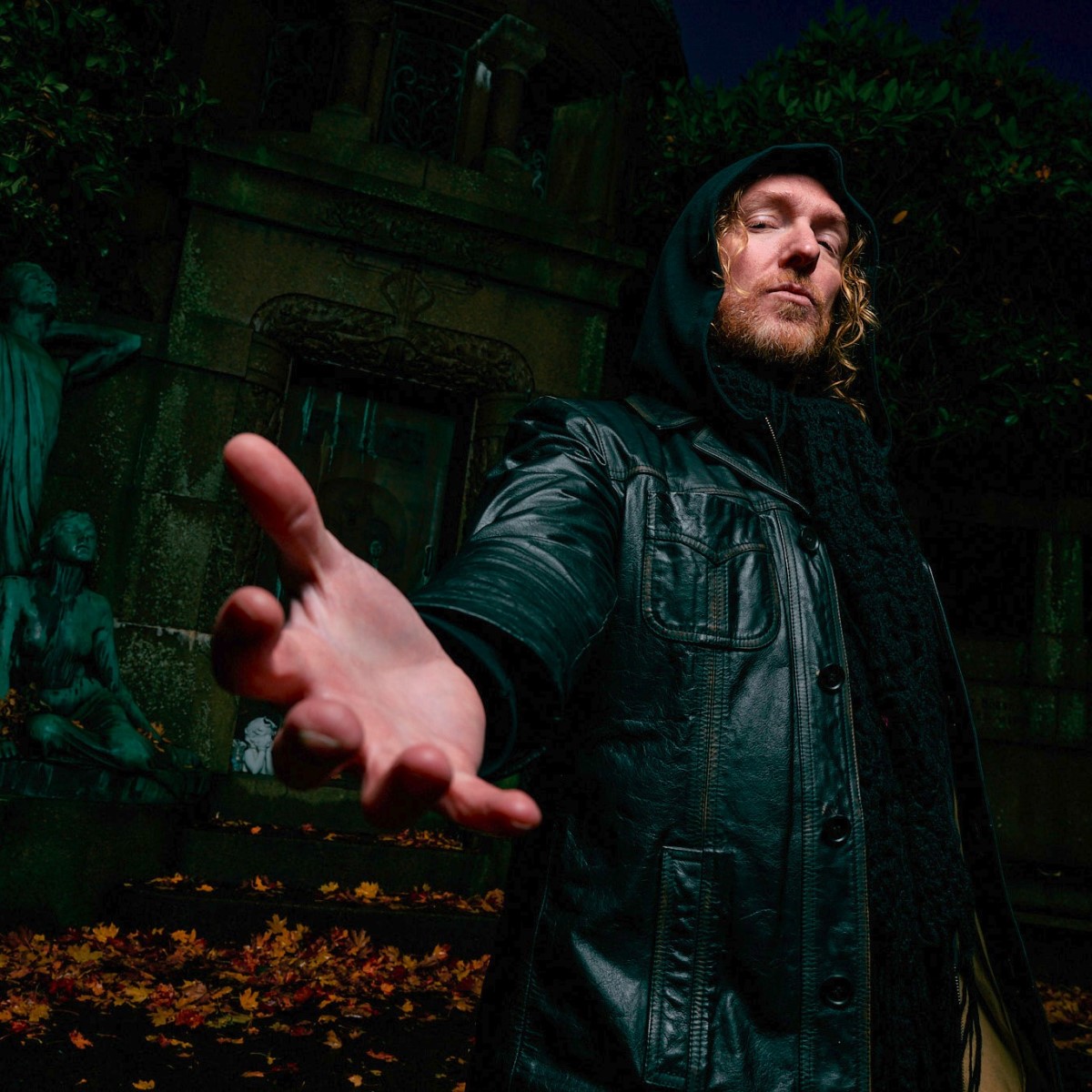


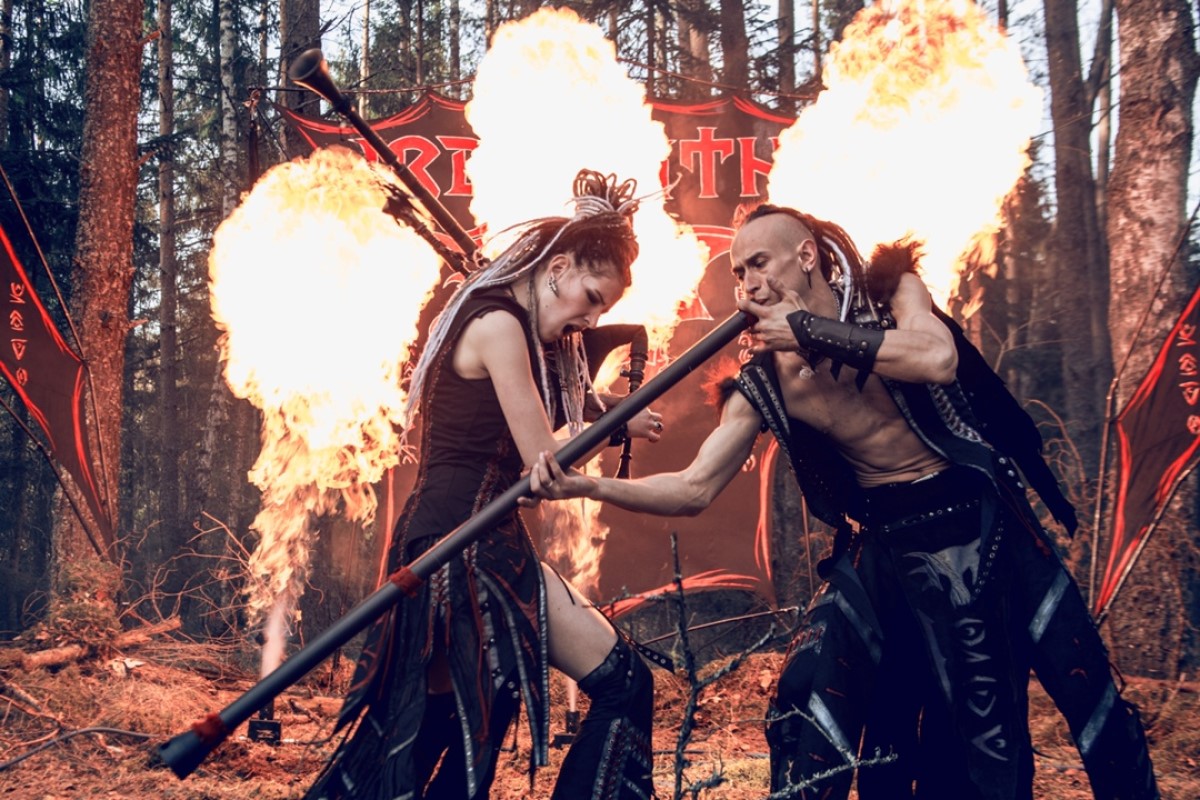 "They wrote that we wanted to influence people's minds with our bagpipes so that they would be willing to attack the police." - Irdorath
"They wrote that we wanted to influence people's minds with our bagpipes so that they would be willing to attack the police." - Irdorath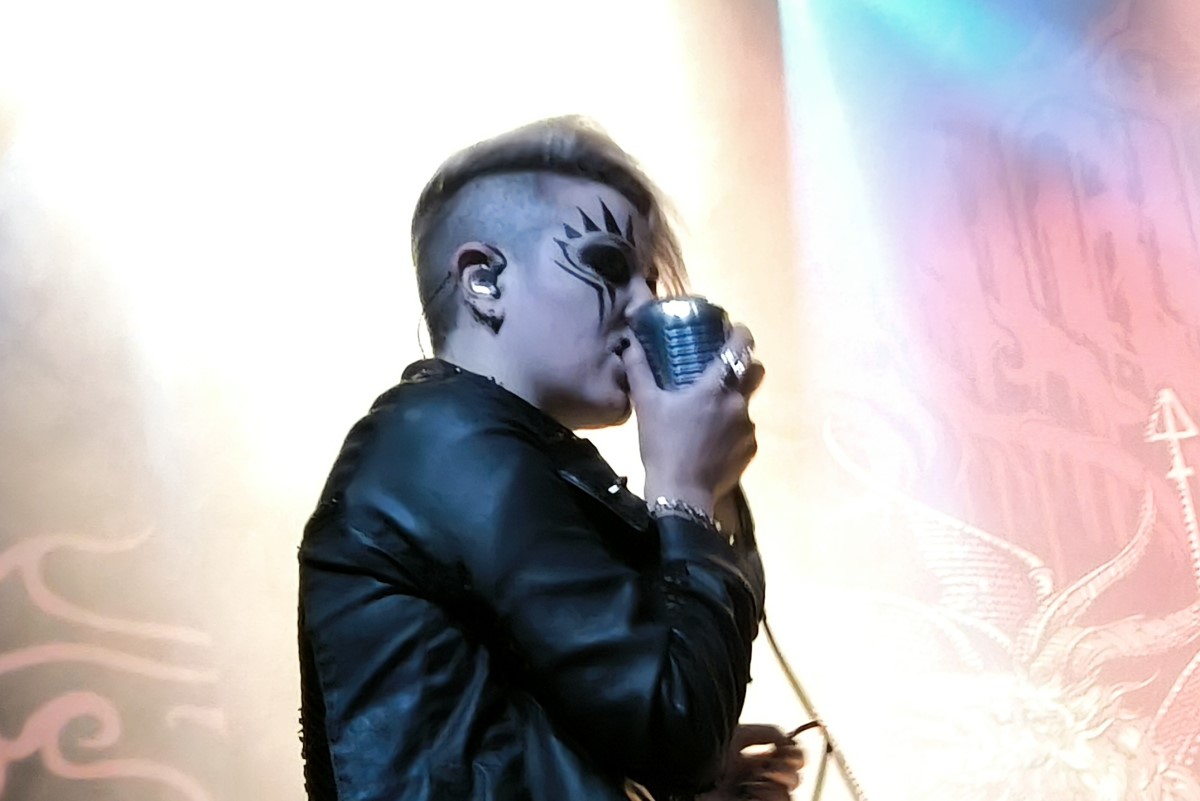 "We were kind of exploring dark subject matters and darker sounds. I really like that, and this is the direction we are going right now." - Larissa Vale
"We were kind of exploring dark subject matters and darker sounds. I really like that, and this is the direction we are going right now." - Larissa Vale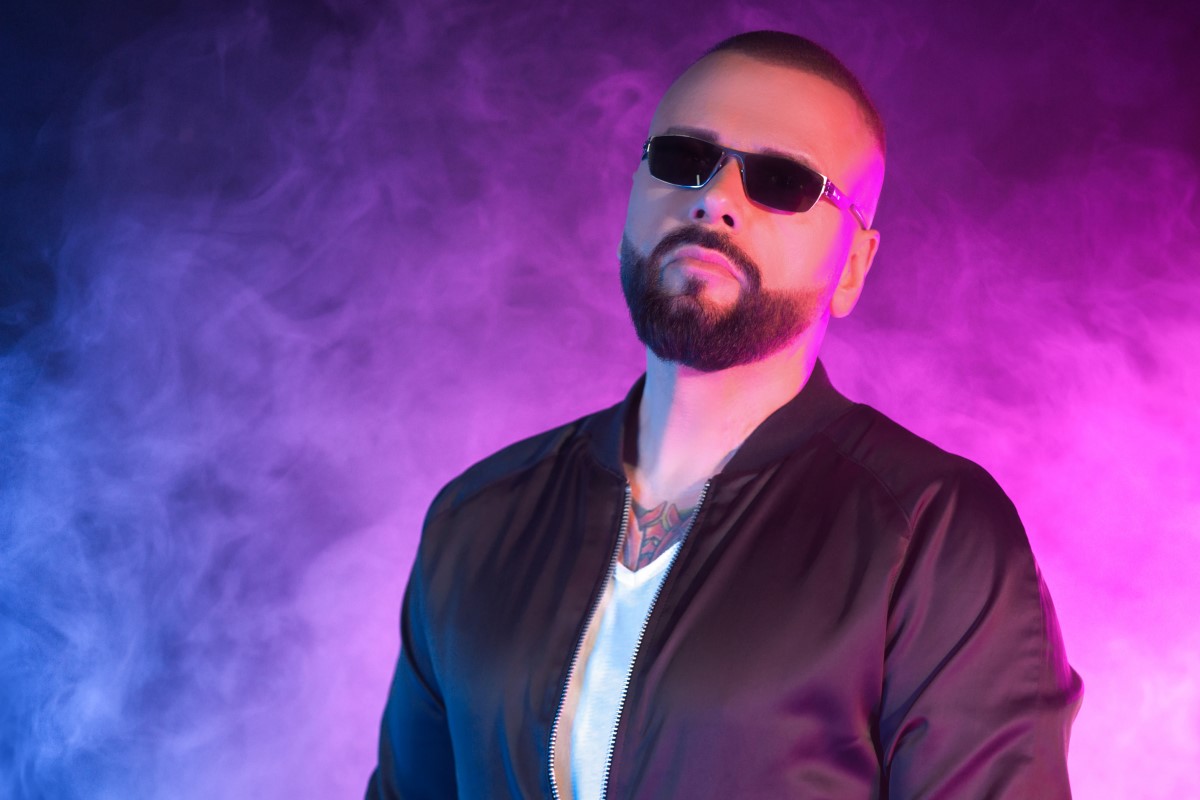 "The speech that they hate is my speech, but my speech is not a hate speech. What can you do? You can just mirror/reflect them - hopefully, they will see how grotesque..." - Dero Goi
"The speech that they hate is my speech, but my speech is not a hate speech. What can you do? You can just mirror/reflect them - hopefully, they will see how grotesque..." - Dero Goi